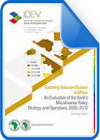
This evaluation is a response to the January 2012 report of the Bank-wide Task Force set up to take stock of microfinance activities of the African Development Bank Group (the Bank). The task force called for an independent and comprehensive review of these activities. The evaluation covers the period 2000 - 2012 and makes recommendations for policy and operations improvement.
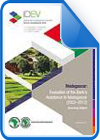
This evaluation assesses the Bank Group’s assistance in Madagascar during the 2002–2012 period and its contribution to the country’s development. The underlying issues of the evaluation are relevance, effectiveness, efficiency, impact, sustainability and the performance of key stakeholders. In addition to literature reviews, the evaluation is backed by sector reviews and field visits to projects. It also takes into account the completion report of the CSP 2005–2009.
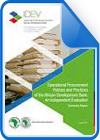
IDEV Evaluation of the efficiency and effectiveness of the Bank’s operational procurement policies and practices during 2007-2013, a period that includes the lead-up to and overlaps with the Bank’s Medium Term Strategy for 2008-2013.
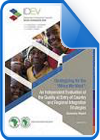
This report presents the findings of the Independent Evaluation of the Quality at Entry (QAE) of Country Strategy Papers (CSPs) and Regional Integration Strategy Papers (RISPs). This evaluation is timely, as it will support the development of the new CSP processes, policies, and format. It will also inform the upcoming renewal of CSPs and RISPs and adjustments to the quality at entry assurance process.
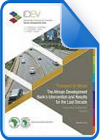
Transport infrastructure development continues to be the main priority underpinning the African Development Bank’s assistance. Between 2000 and 2011, AfDB commitments to the transport sector increased more than six-fold, from UA 150 million to approximately UA 1 billion.

The Climate Investment Funds (CIF) were established in 2008 as an interim measure pending the effectiveness of a United Nations Framework Convention on Climate Change (UNFCCC)-agreed structure for climate finance. They were designed to provide new and additional financing to complement existing bilateral and multilateral financing mechanisms in order to demonstrate and deploy transformational actions to mitigate and adapt to climate change. The funds also aim to promote international cooperation on climate change, to foster environmental and social co-benefits of sustainable development, and to promote learning-by-doing.